Al-Ḥujurāt: 12: Avoiding Suspicion, Spying, and Backbiting: Quranic Ethics for Social Health
The verse reads:
يَا أَيُّهَا الَّذِينَ آمَنُوا اجْتَنِبُوا كَثِيراً مِّنَ الظَّنِّ إِنَّ بَعْضَ الظَّنِّ إِثْمٌ وَلَا تَجَسَّسُوا وَلَا يَغْتَب بَّعْضُكُم بَعْضاً أَيُحِبُّ أَحَدُكُمْ أَن يَأْكُلَ لَحْمَ أَخِيهِ مَيْتًا فَكَرِهْتُمُوهُ وَاتَّقُوا اللَّهَ إِنَّ اللَّهَ تَوَّابٌ رَّحِيمٌ ( سورة الحجرات 12)
“O believers! Avoid many suspicions, indeed some suspicion is sin. And do not spy, nor backbite one another. Would any of you like to eat the flesh of his dead brother? You would despise it. And fear Allah. Surely Allah is the Accepter of Repentance, Most Merciful.”
[Sūrat al-Ḥujurāt: 12]
In the tapestry of a believing society, interpersonal relationships are sacred threads that must be guarded with utmost care. Yet, many of these ties, whether between family, friends, or community members, are quietly frayed not by visible harm, but by silent intrusions: unwarranted suspicion, invasive curiosity, and the poison of backbiting.
The verse from Sūrat al-Ḥujurāt that we reflect upon today is a divine prescription for social health. It begins by calling out to “O you who have believed”, a reminder that what follows is not just social etiquette, but a duty tied to one’s īmān. It warns against ẓann (negative assumptions), tajassus (spying and intruding into others’ affairs), and ghībah (speaking ill of a brother in his absence), each a destructive force that silently corrodes trust, love, and dignity.
In an age of constant digital exposure and unchecked speech, this verse speaks with even greater urgency. Relationships are no longer destroyed just in closed rooms, rather they fall apart through WhatsApp forwards, social media whispers, and hastily passed judgments. And behind many of these breaches lies a heart that did not pause to give benefit of the doubt, or a tongue that forgot to weigh its words.
Allah (subḥānahu wa taʿālā) does not simply forbid these acts. He paints a visceral image: “Would one of you like to eat the flesh of his dead brother?” The disgust we would feel in that scenario is how we should feel about the act of backbiting.
As we journey through this āyah and its meanings, let us reflect on relationships we may have damaged, or are at risk of losing, due to these subtle but serious violations.
Preserving the Sanctity of Human Bonds
This powerful āyah is not merely about etiquette. It is a divine safeguard for human dignity and the foundation of communal harmony. The first toxin warned against is ẓann—negative assumptions and baseless suspicions. As al-Ṭabarī and al-Qurṭubī note, it refers especially to accusing others or holding ill thoughts without proof.
Sayyidunā ʿUmar ibn al-Khaṭṭāb (raḍiyallāhu ʿanhu) said:
"Do not think badly of a word uttered by your believing brother as long as you can find a good interpretation for it."
Indeed, our Prophet ﷺ further emphasised:
"Beware of suspicion, for suspicion is the most false of speech. Do not spy, nor be inquisitive, nor envy, nor hate, nor turn away from one another. Be servants of Allah as brothers."
—[Ṣaḥīḥ al-Bukhārī; Muwaṭṭaʾ Mālik]
Suspicion often leads to tajassus—spying and digging into others’ private matters. This violates trust and fuels animosity. Al-Awzāʿī defined it as seeking out what is hidden, while taḥassus leans more toward listening or eavesdropping. Ibn Masʿūd was once told a man had alcohol dripping from his beard. He responded:
"We were forbidden from spying, but if something becomes clear to us, we will act upon it."
—[Abū Dāwūd]
The Prophet ﷺ strongly disapproved of reporting neighbours without first advising and correcting them. ʿUqbah ibn ʿĀmir warned:
"I heard the Messenger of Allah ﷺ say: Whoever covers (the fault of) a believer, it is as if he brought a buried girl back to life."
—[Aḥmad, Abū Dāwūd, al-Nasāʾī]
These teachings highlight a foundational ethic: protect your brother’s dignity as you would guard your own. Even if faults are real, our first response must be advice, not exposure.
Ultimately, suspicion is not a silent sin—it is a corrosive force. It damages trust, opens the door to spying, and often ends in ghībah (backbiting). One evil births another. No wonder our Prophet ﷺ declared:
"Three things are inescapable for my ummah: envy, suspicion, and pessimism. Whoever is afflicted by one of them, let him seek Allah's forgiveness..."
—[Ṭabarānī]
In the sight of Allah, the honour of a believer is greater than the sanctity of the Kaʿbah. When the Prophet ﷺ looked upon the Kaʿbah, he ﷺ said:
"How sacred you are! But the blood, wealth, and honour of a believer are more sacred to Allah than you. One should only have good thoughts about him."
—[Ibn Mājah]
These prohibitions are interlinked – negative assumptions often lead to snooping, which in turn breeds gossip and resentment.
By understanding these terms, we see that the Quran is prohibiting very specific behaviors: assuming the worst of others without evidence, violating their privacy to dig up faults, and speaking ill of them in their absence. Each of these is declared ḥarām (forbidden) due to the grave harm they cause to individuals and communities, as the following classical exegesis and Prophetic teachings further illustrate.
Detailed Commentary
Imām Abū ‘Abd Allāh al-Qurṭubī, the great Andalusian exegete, provides an extensive commentary on this verse in al-Jāmi‘ li-Aḥkām al-Qur’ān. He begins by relating an occasion of revelation for the verse: It is said to have been revealed regarding an incident where two companions of the Prophet ﷺ fell into backbiting another companion. Al-Qurṭubī narrates that during a journey, the Prophet had paired Salman al-Fārsī (a poorer companion) with two others. Salman went ahead to prepare food but fell asleep and didn’t cook anything. When the two came hungry and found nothing, they sent Salman to ask the Prophet for food. The Prophet sent him to various people (including the quartermaster Usāma bin Zayd), but he returned empty-handed each time. Frustrated, the two companions muttered about Salman and Usāma in his absence: “Usāma must have been hoarding something but he was too stingy to give it”, and they cynically remarked about Salman, “If we send Salman to a well, its water would probably dry up!” They even went to check if Usāma was hiding food – effectively spying on him.
Shortly after, the Prophet ﷺ came upon them and said, “I see bits of green meat between your teeth,” to their astonishment. “We haven’t eaten any meat today,” they protested. The Prophet replied, “But you did eat the flesh of Salman and Usāma by backbiting them.” Thus, this verse was revealed, admonishing the believers to avoid suspicion and backbiting. This story (mentioned by al-Th‘albī and others) illustrates the verse’s teachings in action: the men first assumed ill of their companions (ẓann), then attempted to snoop (tajassus), and finally spoke ill about them behind their backs (ghībah), embodying the very sequence the verse forbids. The Prophet’s intervention showed how repugnant their behavior was in Allah’s sight.
Negative Suspicion
On suspicion (ẓann), al-Qurṭubī emphasizes that the warning applies to unwarranted, negative suspicion – essentially “accusation” in one’s mind He quotes the authentic hadith found in Bukhari: “Beware of suspicion, for suspicion is the most false of speech. Do not spy and do not pry… and be brothers.” The word ẓann here, he explains, means a tuhmah (baseless charge) that has no apparent reason or evidence. For example, suddenly suspecting a Muslim of adultery or drinking alcohol when “nothing outwardly suggests such a thing” is the kind of sinful suspicion meant
Al-Qurṭubī writes: “The place of warning and prohibition is only regarding a suspicion for which there is no valid cause.” If there is a genuine indication of wrongdoing, one may take precautions (as a later discussion notes), but one still should not jump to the worst conclusions. Evil thought with no proof is ḥarām – especially if the person is known to be righteous. “Do not suspect people of evil when their outward state is good,” Qurṭubī advises. He then cites a report: “Allah has forbidden the blood, property and honor of the Muslim, and that one assume evil of him.” Sū’ al-ẓann (ill-thinking) violates a Muslim’s honor just like physical harm violates his rights. Interestingly, the early Muslim saint Ḥasan al-Baṣrī remarked: “At our time, (entertaining) suspicion about people was forbidden. But today you are in a time where you may act and remain silent – and think whatever you want about people.” This statement poignantly contrasts the strict discipline of the salaf (early generations) in avoiding suspicion, versus later times when moral standards had fallen such that people became cynical. It underscores that believers should strive to uphold the prophetic standard of assuming good, regardless of social trends.
The general rule remains: dismiss negative hunches about decent people, and even if a doubt crosses your mind, do not act upon it or persist in it. Prophet ﷺ says: “If you feel suspicion, then do not pursue it (la tuḥaqqiq); if you envy, do not transgress; if you have bad omens, ignore them and proceed.”. This ḥadīth (in Abū Dāwūd) succinctly advises that when a mere suspicion or doubt arises, do not seek to confirm it – let it go and do not turn it into certainty by investigation Islam cuts off the very root of fitnah (strife) by telling us not to feed our suspicions through spying.
Spying and Digging into Privacy
Regarding “do not spy” (wa lā tajassasū), al-Qurṭubī explains that the “meaning of the verse is: take what is apparent and do not pursue the hidden faults of Muslims”. He writes, “Do not search for your brother’s faults after Allah has concealed them.” This means if Allah has not exposed a person’s sin or flaw publicly, you have no business digging around to find it. The command forbids all forms of snooping: listening at doors, peeking into private spaces, intercepting messages, etc., done out of suspicion or malice.
In one narration in Abū Dāwūd, Mu‘āwiyah (the Companion) said, “I heard the Messenger of Allah say: If you pursue the private matters of people, you will corrupt them or nearly corrupt them.” Abu’d-Dardā’ (another Companion) commented, “This is a word of advice Mu‘āwiyah heard from the Prophet, and Allah benefited him by it.”. Indeed, history shows that during his governorship, Mu‘āwiyah was known for not prying into people’s personal lives, applying this principle in governance.
Another hadith from Abu Umāmah, states: “When the ruler searches for causes of suspicion in the people, he corrupts them.” In other words, if those in authority become overly invasive, the society itself falls into discord and hypocrisy – a profound lesson for leaders. Al-Qurṭubī relates a telling incident involving ʿUmar ibn al-Khaṭṭāb (the second Caliph) that exemplifies the Islamic stance on privacy:
ʿUmar (raḍiyallāhu ʿanh) was patrolling Madinah by night with ʿAbd al-Raḥmān ibn ʿAwf when they noticed a house with a light and heard loud voices. Suspecting a gathering of drinking, ʿUmar climbed the wall and indeed found people with wine. Before taking action, ʿAbd al-Raḥmān admonished him: “O Amīr al-Mu’minīn, we have done what Allah forbade. He forbade spying, and we have spied.” Hearing this, ʿUmar immediately feared Allah, desisted and left them alone. On another occasion, ʿUmar had burst into the home of Abū Mihjan al-Thaqafī (a man rumored to drink). Abū Mihjan protested, “O ʿUmar, this is not permissible for you! Allah has prohibited spying.” Realizing his error, ʿUmar apologized and withdrew without penalizing him
These anecdotes show that even the caliph — known for his rigor in enjoining right and forbidding wrong — understood that the method of enforcing morality cannot violate the Islamic principle of privacy. As long as a sin is kept behind closed doors and does not harm others, authorities are not entitled to snoop or entrap the sinner. Instead, public advice, education, and creating a good environment are the sanctioned means to reduce hidden evils Ibn Mas‘ūd (raḍiyallāhu ʿanh) once responded to a report of someone drinking by saying: “We have been forbidden from spying. But if something manifests to us openly, we will act on it.” This highlights the balance: visible, public wrongdoing can be addressed, but unseen private matters are left to Allah’s judgment unless they come to light by themselves.
The Prophet ﷺ: “O community of those who have believed by their tongues but faith has not yet entered their hearts! Do not backbite Muslims, nor seek out their private faults. For whoever searches out the faults of Muslims, Allah will track his own faults, and when Allah follows someone’s faults He will expose him even if he is in the depth of his house.”. This ḥadīth (recorded in Sunan Abī Dāwūd and elsewhere) powerfully reinforces the verse – whoever digs for dirt on others will find that Allah unveils their dirt to the world. Many scholars, including al-Qurṭubī, mention that this “exposure” by Allah can occur even in this world, humiliating the spy as a just recompense. The Prophet’s address also indicates that indulging in backbiting and spying is a sign of weak faith – those who have true īmān in their hearts would fear Allah too much to pry or gossip.
Backbiting and Gossip
After covering suspicion and spying, al-Qurṭubī discusses ghībah in depth. He confirms the definition: “It is to mention about a person in their absence something they dislike, even if it is truly in them. If it’s not in them, that is slander (buhtān).” This is precisely in line with the hadith from Muslim cited earlier. He adds an insightful note from Ḥasan al-Baṣrī: “Backbiting has three forms, all mentioned in the Book of Allah: (1) Ghībah – that you say about your brother what is actually in him (a real fault); (2) Ifk (calumny) – that you say what reaches you about him (i.e. spreading rumor that you heard from others); (3) Buhtān (slander) – that you ascribe to him what is not in him.”. Thus, whether one is spreading true faults, unverified hearsay, or outright lies, all of it is forbidden and each has its degree of sinfulness. Sadly, people often consider spreading “already known” gossip or “everyone says so” rumors to be somehow excusable, but this classification by Ḥasan shows it is all sinful speech condemned by the Qur’an (whether as ghībah or ifk or buhtān).
Al-Qurṭubī, like other mufassirūn, highlights how severely the Sharī‘ah treats backbiting because it violates both the rights of Allah and the rights of fellow humans. In one narration, the Prophet ﷺ is reported to have said: “Backbiting is worse than adultery.” When the Companions asked how that could be, he explained: “A man may commit fornication and then repent, and Allah can forgive him. But the sin of backbiting is not forgiven until the one wronged has forgiven.”. This is because adultery, grave as it is, is a direct offense against Allah’s commands, whereas backbiting harms another person by sullying their honor – and Allah will not pardon it unless the victim pardons (since it’s a violation of personal rights). Thus backbiting uniquely combines an offense against Allah and an injury to the servant of Allah. It is a social crime that can persistently undermine brotherhood if left unchecked.
To drive the lesson home, al-Qurṭubī cites the famous incident of the two gossipers and the dead animal: After the Companion Mā‘iz was stoned for adultery (a sin he self-confessed seeking purification), two men began talking ill of him: “Look at this man – Allah concealed his sin yet he kept confessing until he was executed like a dog!” Later, as the Prophet ﷺ and some companions were travelling, they passed by a decaying carcass of a donkey. The Prophet stopped and ordered those two men: “Dismount and eat from this carrion!” They were shocked and said, “O Prophet of Allah, who would ever eat this?!” He replied, “What you two said about your brother (Mā‘iz) was more foul than eating from this dead donkey. By the One in whose hand is my soul, he is now swimming in the rivers of Paradise.”. This potent story (shows how the Prophet illustrated the Qur’anic analogy in real life – he made them imagine chewing rotting flesh to recognize the ugliness of what they had done. It also teaches us not to self-righteously gossip about a sinner, because that sinner may have repented and attained Allah’s forgiveness (as Mā‘iz did), whereas the backbiter earns Allah’s wrath. No one should feel safe to malign another, for the tables can easily turn in the hereafter.
Al-Qurṭubī, after condemning ghībah unreservedly, does acknowledge that scholars have listed specific exceptions where mentioning something negative about someone without it being considered sinful backbiting is allowed or even required. These exceptions are governed by necessity and sincere intention, not malice. They include cases such as
- Oppression or Complaint: Seeking help or justice – e.g. complaining to a ruler or judge about someone’s wrongdoing (ẓulm) so it can be remedied. Here one must describe the person’s actions factually to someone who can intervene.
- Seeking a Fatwa or Advice: For instance, telling a mufti or counselor about a family member’s bad behavior in order to obtain a Sharī‘ah ruling or advice (as in the case of Hind bint ‘Utbah complaining of her husband’s stinginess to the Prophet ﷺ)
- Warning or Protecting Others: Informing someone about another’s harmful tendencies for a valid protective reason – e.g. warning a potential business partner or spouse about a person known for fraud or abuse or alerting the community about a troublemaker or a dangerous ideological deviant. This must only be done to the extent necessary for protection.
- Consultation (Mashurah): If someone seeks your advice about a person (for a job, marriage, etc.), you are obliged to be honest about any real issues – even if it is “negative” – so that the person is not deceived. Withholding such information in this context could cause greater harm.
- Public sinners: Someone openly flaunting their disobedience (e.g. public alcohol seller, someone who boasts of immorality) has effectively uncovered their own honor, so mentioning their public actions is not considered the ghībah that this verse forbids. Though even then, scholars note it is usually better not to harp on someone’s sins unless there is a benefit, as constantly talking about evil numbs the heart.
Outside these limited scenarios, speaking ill of someone remains ḥarām, regardless of the truth of the matter. And even for these exceptions, the scholars imposed conditions: one’s intention must be sincere (to achieve justice or prevent harm, not to revel in someone’s faults), and one should mention only as much detail as needed. The permissibility is tied strictly to necessity, not desire. This prevents abuse of these exceptions as excuses for casual gossip. As a rule of thumb, if the same objective can be achieved without naming or shaming the person, that route should be taken.
Contemporary Relevance: A Quranic Compass for the Digital Age
In our digitally connected world, the Qur’anic commands in Surah al-Ḥujurāt (49:12) to avoid suspicion (ẓann), spying (tajassus), and backbiting (ghībah) are more vital than ever. Online communication often breeds misinterpretation, leading to baseless assumptions. Islam calls for ḥusn al-ẓann (positive assumptions), verification of information (49:6), and respectful restraint , values we must carry into emails, chats, and social media.
Digital spying, whether through snooping on phones, reading private messages, or using tracking apps, violates the trust and dignity Islam upholds. Privacy is a right, and the Prophet ﷺ forbade violating it. Similarly, ghībah has found a louder voice in group chats and comment sections. Sharing private messages or mocking someone online remains a sin, even if veiled in humour or "venting."
These behaviours deeply damage personal relationships and community trust. Suspicion and gossip can unravel marriages, friendships, and unity within organisations or ummah-wide spaces. Instead, Islam envisions a society built on confidentiality, empathy, and respectful speech, online and offline. Upholding these teachings is the groundwork for a healthy relationship rooted in taqwā and brotherhood.
References:
- The Holy Qur’ān, 49:12 with classical Tafsīr (exegesis) by al-Ṭabarī, al-Qurṭubī , and Ibn Kathīr
- Ṣaḥīḥ al-Bukhārī and Ṣaḥīḥ Muslim – ḥadīth on suspicion and brotherhood ḥadīth defining backbiting
- Sunan Abī Dāwūd and Jāmiʿ al-Tirmidhī – ḥadīth forbidding spying and exposing faults
- Articles on Islamic ethics in the digital age, highlighting the continued applicability of Qur’ān 49:12 to social media conduct and privacy.
- Ibn Ḥajar al-Haythamī’s Al-Zawājir ʿan Iqtirāf al-Kabāʾir – which includes backbiting and carrying tales among the gravest sins, citing many of the above texts.
Disclaimer
The views expressed in this article are the author’s own and do not necessarily mirror Islamonweb’s editorial stance.

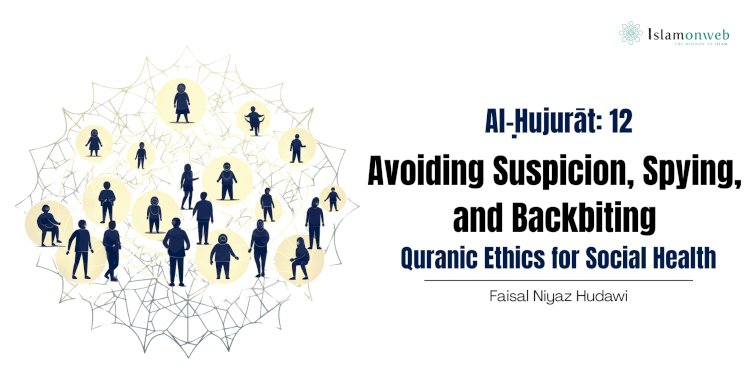


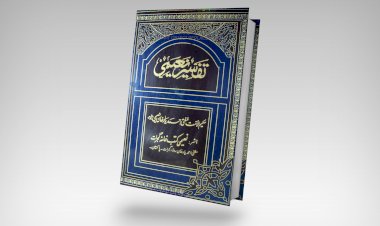

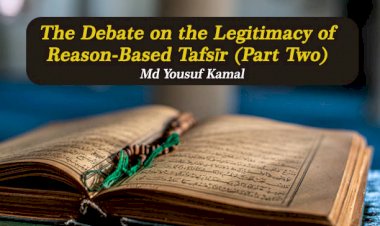
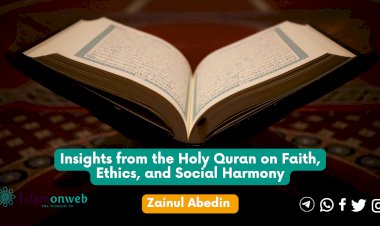
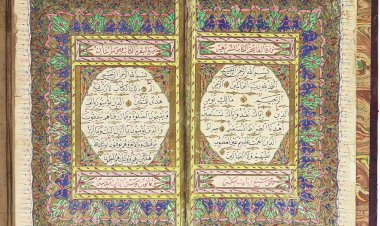
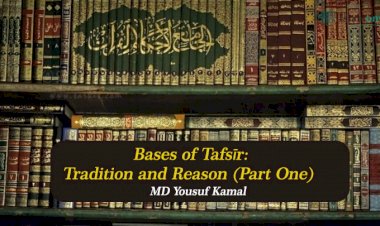














Leave A Comment